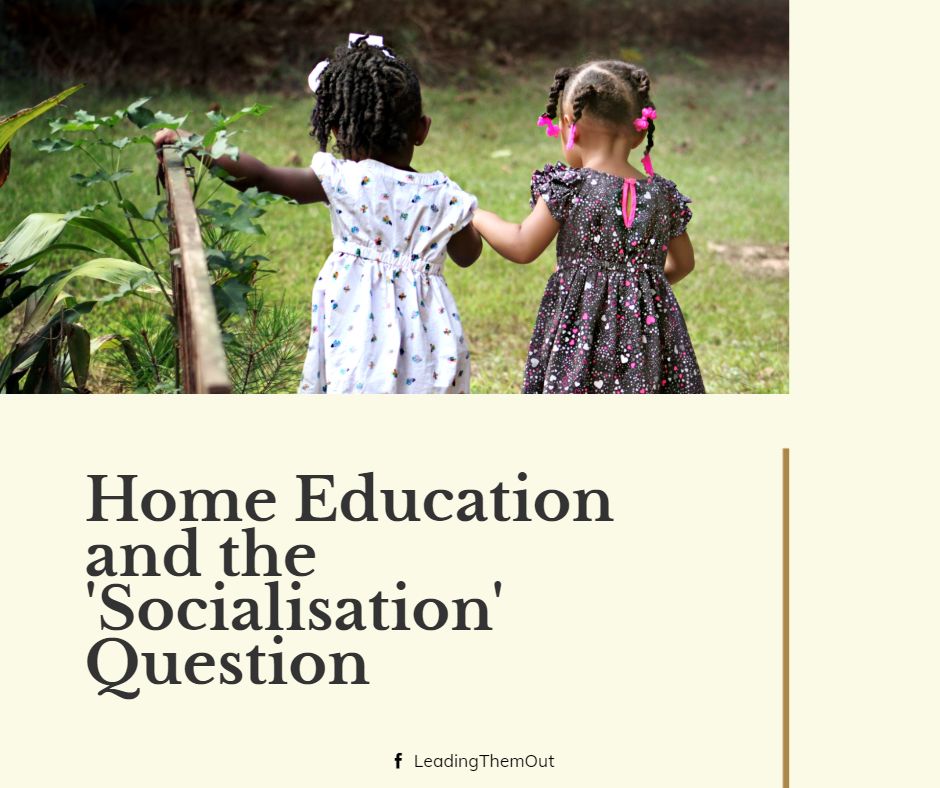If you have home educated for any amount of time, somebody will have asked you what opportunities your child has for socialisation. There is a strong temptation to immediately reel off a long list of all the activities and meet-ups that your child takes part in outside of the home. I know this because I have done it! We feel an immediate need to justify ourselves and to prove to others how much time our child spends with non-family members. I wonder whether perhaps we should be a little slower to take on the values of everybody around us. Instead, could we respond to the question in such a way that we can provoke some thought?
The first question we need to ask is, ‘what do you mean by socialisation?’ The dictionary says that socialisation is 1. ‘the activity of mixing socially with others’ and 2. ‘learning to behave in a way at is acceptable to society.’ Let’s look briefly at each of these:
1. ‘The Activity of Mixing Socially With Others’
When most people ask about socialisation, I think that what they want to know is whether my children are learning social skills by spending time with people (normally children of the exact same age) OUTSIDE of my home. I am at no point here saying that all social contact outside of the home is wrong and detrimental. I think it can be extremely beneficial. What I am suggesting is that the home is the best place to learn social skills. Let us consider for a few moments some of Jesus’ instructions from ‘The Sermon on the Mount’ regarding how we are to behave towards others.
• Jesus says ‘love your enemies,’ (Matt 5:44). Who are our children most likely to squabble with? Their siblings! (I hope I am not going out on a limb here!). In the moment when they are utterly frustrated with the behaviour of another sibling, we have a wonderful opportunity to encourage them to love the one who has been provoking them.
• Jesus said ‘Blessed are the peacemakers,’ (Matt 5:9). How many times in the day do our children have the opportunity to learn peace-making skills by defusing an argument rather than contributing to and thereby escalating an argument? After one particularly fraught morning where my children were constantly bickering and I was not responding as a godly woman should(!), I decided to cancel our afternoon lesson and spend some time considering and learning the proverb ‘A soft answer turns away wrath, but a harsh word stirs up anger’ (Proverbs 15:1). How is time spent unsupervised with ungodly peers to rival these moments when we can open the Bible with our children and teach and instruct them about a better way with relationships?
• Jesus said, ‘I tell you that everyone who is angry with his brother will be liable to judgement;…if you are offering your gift at the altar and there remember that your brother has something against you, leave your gift there before the altar and go. First be reconciled to your brother, and then come and offer your gift.’ (Matt 5:23-24) Obviously, this verse is about conflict with all believers not just in the family. But how often do we have the chance to apply this principle? Coming together for family worship or even getting ready to go to church can often be fraught with little conflicts that we can set the example in putting right before worshipping the Lord together.
2. ‘Learning to behave in a way at is acceptable to society.’
• As a Christian I believe that Jesus Christ is the son of God, who broke the power of sin and death on the cross and that the only way to heaven is for us to turn to God in repentance and faith (John 14:6). I believe Scripture is the Word of God and cannot be broken (Matthew 22:31; John 10:35). I am pro-marriage (I believe that a marriage is a covenantal relationship that takes place between a man and a woman and lasts until one spouse dies – Matthew 19:4-6). I am pro-life (Psalm 139:13-16). My list could go on and ultimately the values that I hold are not acceptable to society. If socialisation means behaving in a way that is acceptable to a society which ultimately rejects these biblical values that I hold, then I cannot embrace ‘socialisation’ as a good thing.
One of the benefits of home educating is that we can teach our children how not to behave like society around us. In fact, if they grow to love the Lord and are strong in him, they will probably stand out. To be spending more time out of the home than in it, because we are fearful our children may not be ‘socialised’ properly is a red flag. Let’s trust God as we teach and disciple our children in our homes that he will provide all the opportunities that we need to show our children how to interact with others in a way that brings glory to him. Perhaps the next time somebody asks us the ‘socialisation’ question, we can respond in such a way that it will cause them to think about just who is socialising their own children…

